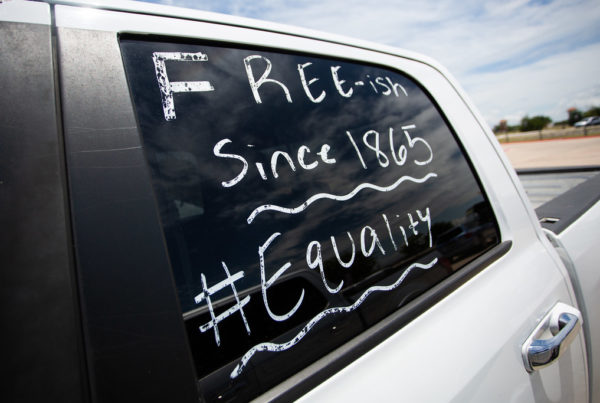Late Thursday, a sweeping police reform measure passed in the U.S. House of Representatives. The George Floyd Justice in Policing Act, which would ban chokeholds and make it easier to hold police liable if sued, was largely approved along party lines. Mostly Democrats voted in favor.
But it’s far from being implemented. Now, it’s up to lawmakers in the Senate to decide whether they will make adjustments to the House version or reject it altogether. The bill will likely face an uphill battle to be approved in the upper chamber.
Congresswoman Eddie Bernice Johnson is Democratic representative for Texas’ 30th District in the Dallas area, and a member of the Congressional Black Caucus. She spoke with Texas Standard Host David Brown on Friday about the long road ahead for the bill before it can actually become law.
“If we had made a bit more effort in trying to make it more bipartisan we probably would have had a bit more success,” Johnson said. “That really does put a problem before us in trying to get it through the Senate.”
The House and Senate versions of the bill are similar. But Johnson said the Senate version, which was crafted by majority Republican lawmakers, gave police officers more leeway. That difference is symbolic of the rift between Republicans and Democrats in Congress on this issue.
“[The Republicans] have put together their theme song that [Democrats] are trying to destroy the police department, and trying to take all of the authority away [from] the policemen,” Johnson said.
Reflecting on her early days in Congress, Johnson said she was first elected to the U.S. House in 1992 – the year Los Angeles police officers were acquitted after beating Rodney King, and the subsequent riots there. She had thought that the country had made some progress toward racial justice. But recent events have caused her to question the extent of that progress.
“There has been very little effort, or legal ways, to weed out policemen that remain a problem,” Johnson said.
But with all of the attention on police brutality right now, she said it’s a unique opportunity for change.
Web story by Sarah Gabrielli.
















